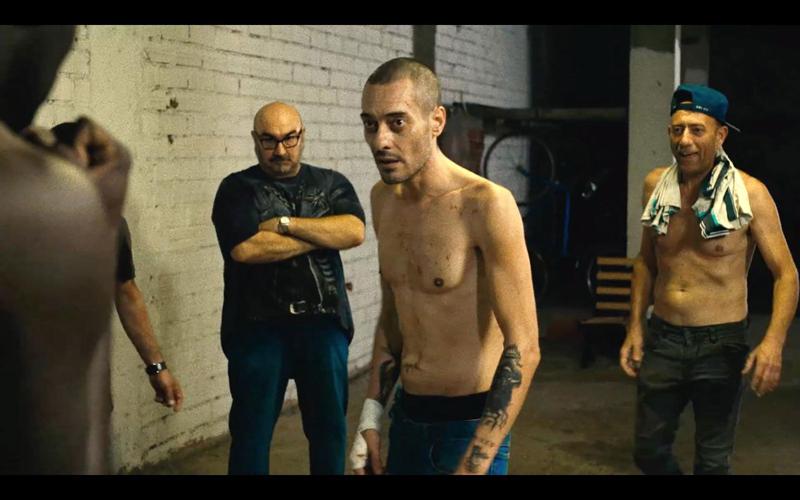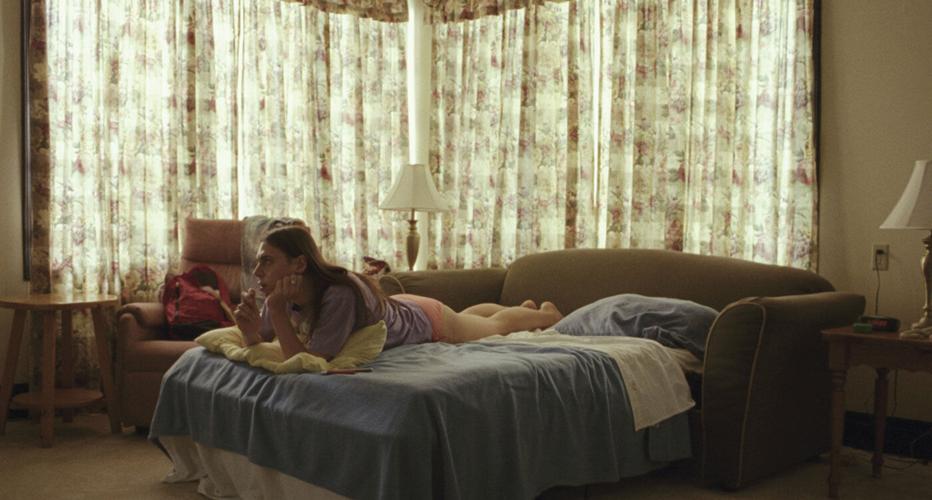
Rome: Death to America
The Defy Film Festival’s roots as a gathering for experimental filmmakers specializing in non-narrative and even uncategorizable fare helped it to build a far-reaching reputation as a celebration of far-out movie making. As Defy returns to East Nashville for its eighth year this weekend, the festival is still committed to screening the strange and spotlighting the unexpected, but it’s also expanded its focus to include edgy independent narrative features and documentaries alongside the more experimental works and video art installations. These films push boundaries in their subject matter while maintaining more traditional structure and editing. This year’s highlights include the return of a former festival award-winner, a unique family drama and a standout film essay by a former Nashvillian.
Los Angeles-based filmmaker Kevin Ronca made his first trip to Defy back in 2019. Ronca produced Nightcrawlers — a vivid and visceral documentary about youth, drugs and mental illness among folks living on the streets in Boston. Nightcrawlers won Defy’s Excellence in Feature Film award, and Ronca is bringing two new features to this year’s fest. Ronca directed Rome: Death to America, the first special created for the filmmaker’s excellent experimental and subversive streaming platform Write Brain TV. Rome’s eponymous subject is communist activist and Detroiter Rome Bethea, who is building a Black militia with the express aim of overthrowing the U.S. government. Ronca announces his film with a bold red credit sequence and a stirring string section alongside archival stills, photos and illustrations of Black people taking up arms. Ronca’s movie feels like the child of the vintage shorts and features from Cuba and the old Soviet Union currently streaming on Write Brain TV. Ronca and cinematographer Adam Hribar’s footage of Detroit’s abandoned residential neighborhoods and Andrew Meehan’s excellent score make this portrait of a radical activist as engaging as its colorful, complex and controversial subject.

Bronko
Ronca’s Write Brain Studios is also distributing Bronko — a Spanish film written and directed by Catalonian singer-songwriter Isaac Ulam. Bronko’s title character (played by Ulam) is an artist and actor who descends into drugs and violence before meeting a trans sex worker who helps bring focus and meaning to his self-destructive life. Bronko’s saturated frames were shot on the streets of Catalonia using 35 mm film, and this movie’s gorgeous colors, textures and intense performances manage to bring both unsettling realism and artful stylization to this brutal and moving story of longing, love, loss and late-stage capitalism.

Something You Said Last Night
Luis De Filippis’ Something You Said Last Night is a 2022 Canadian-Swiss film centered on a young trans woman named Ren. The movie reminded me a little bit of the best 1990s slacker dramas about 20-somethings trying to negotiate the beginning of adulthood. The movie follows an Italian family to a North American seaside cottage on a weeklong summer vacation. De Filippis’ excellent script is focused on the everyday interactions of the parents and the kids, and it admirably avoids strict plotting in favor of a slice-of-life drama that reveals complex relationships without feeling burdened to build to a climax and contrive a resolution. Narrative films about trans characters that focus on gender ideology can make their protagonists feel exotic, paradoxically making it more difficult for broader audiences to connect to and empathize with their stories. Something You Said Last Night has rightfully been praised for telling the story of a trans character grappling with universal struggles like establishing an independent adulthood. This is a movie about daughters and sisters, growing up and growing apart. De Filippis deserves praise for avoiding the clichés of both family dramas and contemporary trans stories. Something You Said Last Night is the first feature screening at the festival’s Friday night opening event.
Defy is the best film festival in the city, and its ever-evolving programming only continues to surprise. That said, I love the festival’s continued commitment to experimental movies and short films that often lack the reliable distribution models and industry infrastructure to realistically find audiences. Ruwan Heggelman’s “Gnomes” reads like The Dark Crystal meets Motel Hell. This blood-soaked marvel is brimming with diabolical design and paranormal puppetry, and it’s the kind of short film that you could see finding an opportunity to expand into a feature thanks to the spotlight that festivals like Defy can provide. “Gnomes” is screening in the festival’s Horror Shorts block, which also includes the relentless “We Forgot About the Zombies.” Chris McInroy’s go-for-broke living-dead flick has a just-over-three-minute runtime that’s overflowing with excellent effects, hilarious dialogue, buckets of gore and a unique plot twist that makes it one of the best of the fest. Former Nashvillian Josh Whiteman’s Ross McElwee-esque film essay “Horny Kid” features home video footage and a conversation between Whiteman and his mother. It’s a nostalgic piecing-together of Whiteman’s childhood crushes on Victoria’s Secret catalog models, Kimberly the pink Power Ranger, the blond and buxom Sami Brady on Days of Our Lives, and a 3-foot-tall dancing Barbie doll that he never got for Christmas. It’s hilarious but also heartfelt, and it’s another great example of a short documentary that leaves you wanting to know more.
Defy runs Friday night through Saturday night and includes filmmaker chats, the festival’s innovative video installations and headphone theater screenings, as well as the always-a-blast closing party on Saturday night. Visit defyfilmfestival.com for times, tickets and weekend passes.







